Russian musicians are leaving the country to find a new audience in Georgia

Your support helps us to tell the story
From reproductive rights to climate change to Big Tech, The Independent is on the ground when the story is developing. Whether it's investigating the financials of Elon Musk's pro-Trump PAC or producing our latest documentary, 'The A Word', which shines a light on the American women fighting for reproductive rights, we know how important it is to parse out the facts from the messaging.
At such a critical moment in US history, we need reporters on the ground. Your donation allows us to keep sending journalists to speak to both sides of the story.
The Independent is trusted by Americans across the entire political spectrum. And unlike many other quality news outlets, we choose not to lock Americans out of our reporting and analysis with paywalls. We believe quality journalism should be available to everyone, paid for by those who can afford it.
Your support makes all the difference.Until September, Aleksei Antropov was playing double bass for the Russian Philharmonic orchestra in Moscow.
But when president Vladimir Putin ordered Russia’s first mobilisation since the Second World War to boost his faltering invasion of Ukraine, the 29-year-old fled to neighbouring Georgia where he now works as a hotel receptionist.
The classical musician is one of hundreds of thousands of Russians, many of them young men, who left the country to avoid the risk of being called up to fight a war that some do not agree with.
The Georgian capital Tbilisi was a popular destination because it can be reached by land, has relatively lax entry and exit rules and enjoys close cultural ties with Russia.
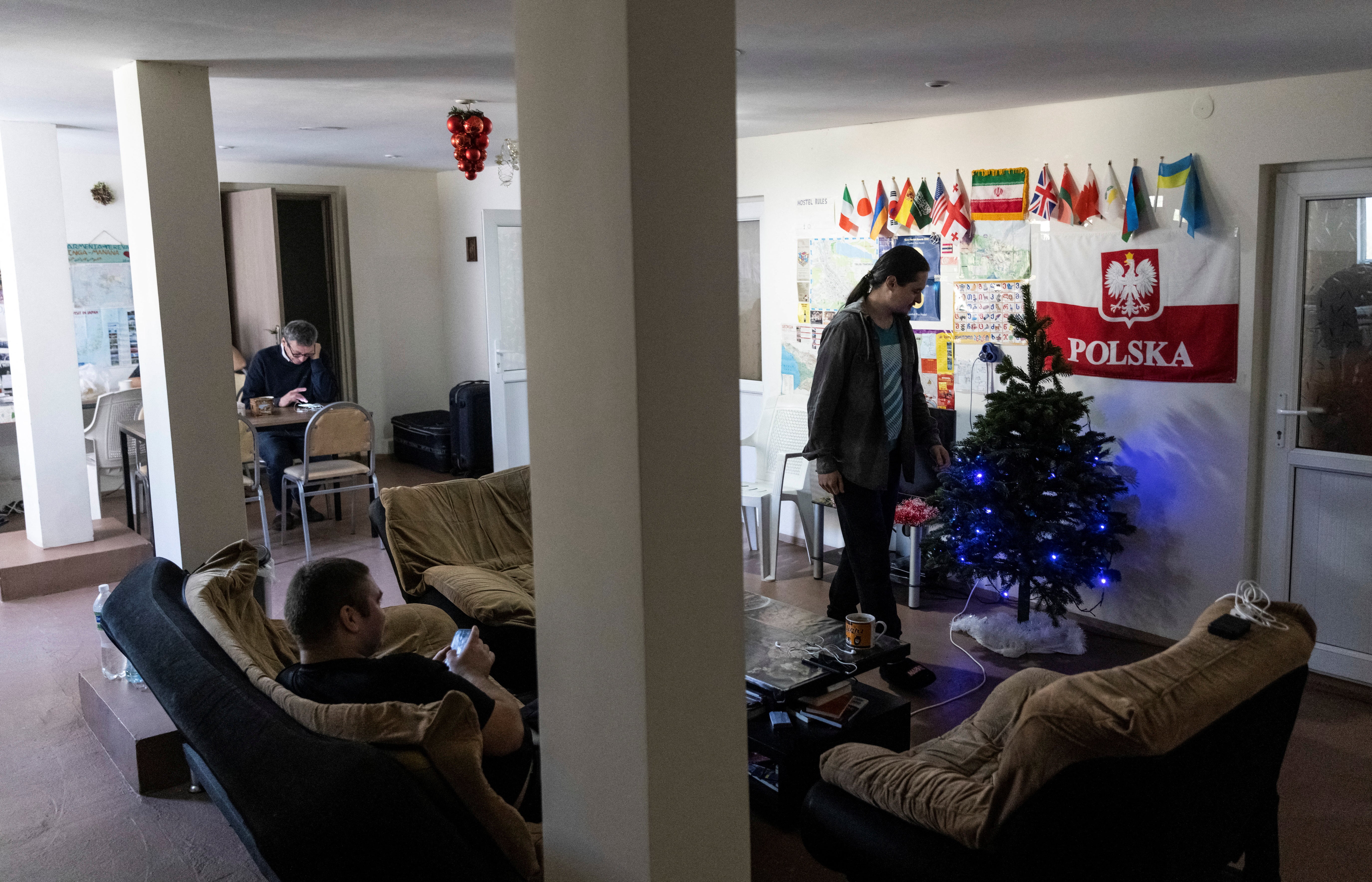
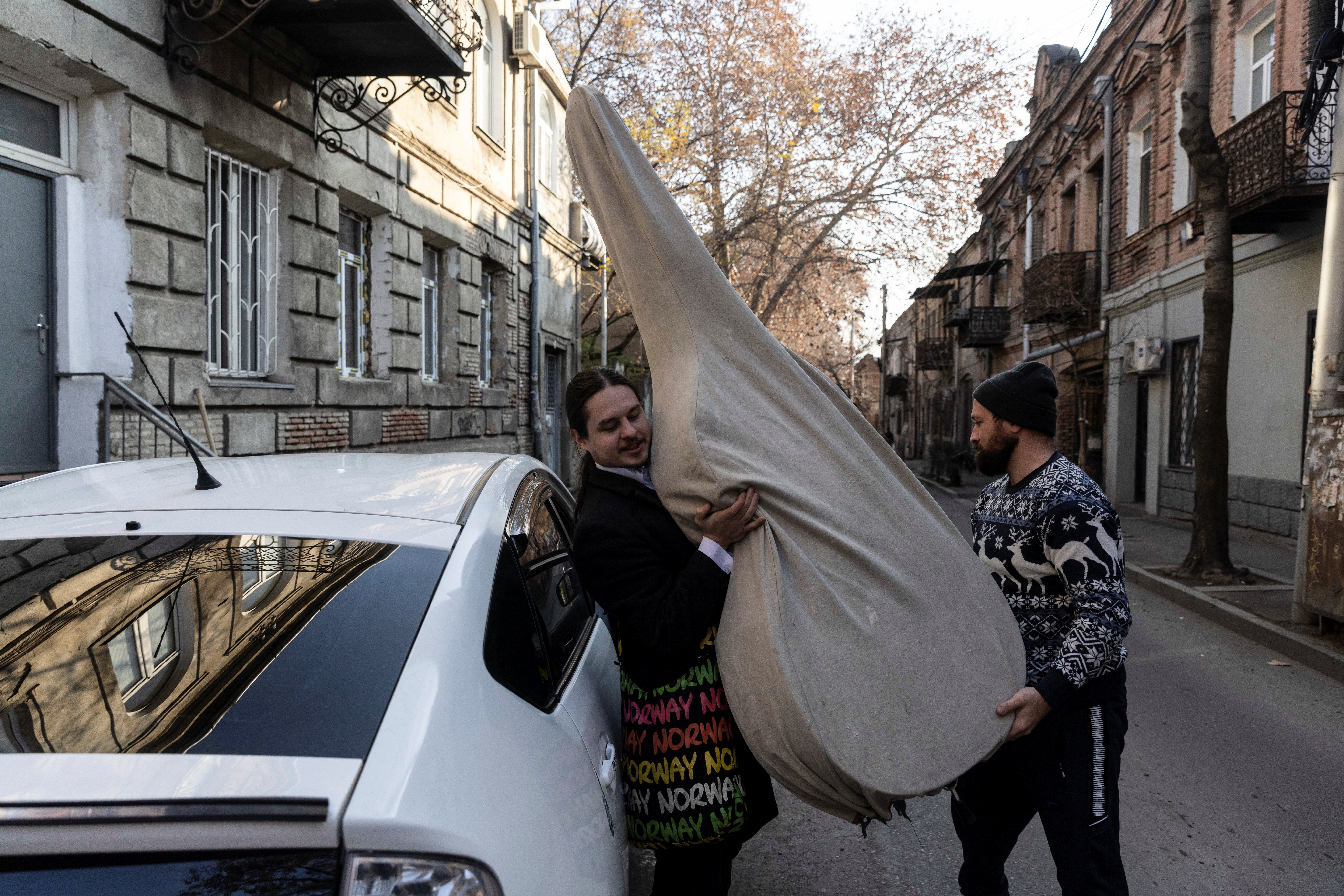
Antropov is embarking on a new life abroad, initially living in a cheap hostel on the outskirts of Tbilisi before moving into an apartment with friends and holding down a modest job.
He is also keeping his passion alive and has gathered a small group of classical musicians who, like him, are Russians, with a view to performing in Tbilisi and possibly Yerevan, the capital of neighbouring Armenia.
“I do not have an orchestra now,” Antropov says. “So I am building my own.”
For the first rehearsal in late December, held in the rented basement of a building in central Tbilisi, he bought a stack of cheap plastic stools for the players to sit on.
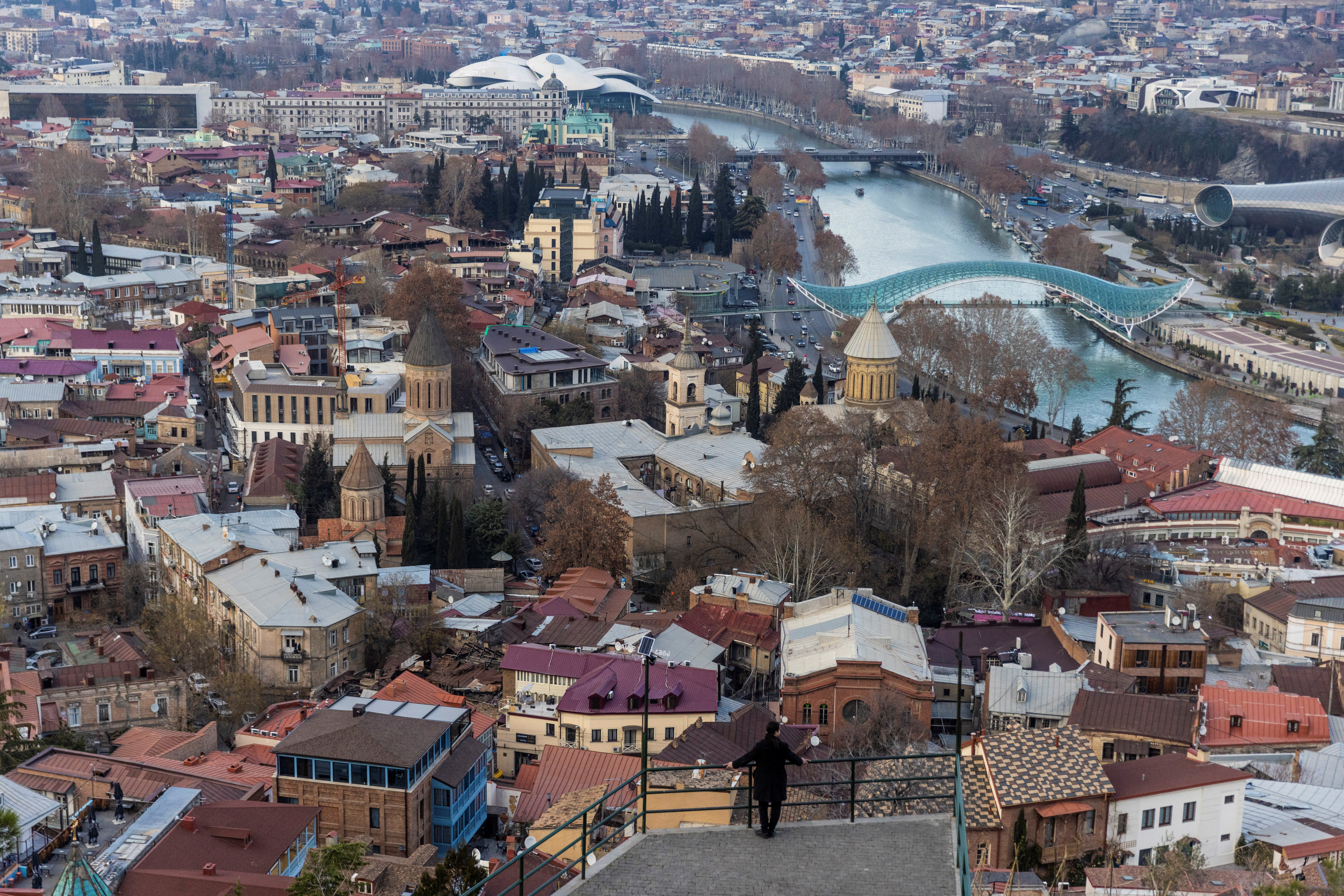
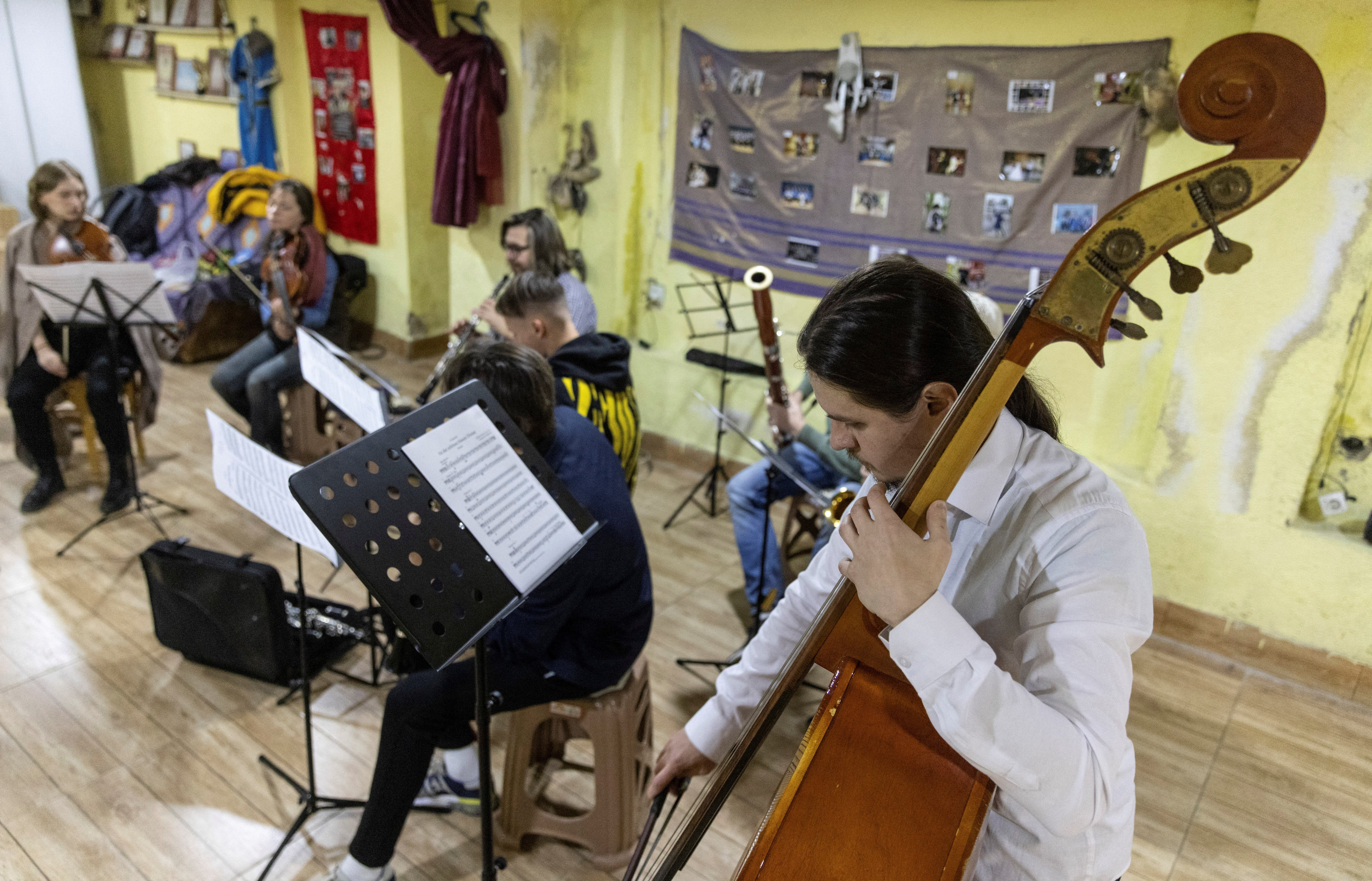
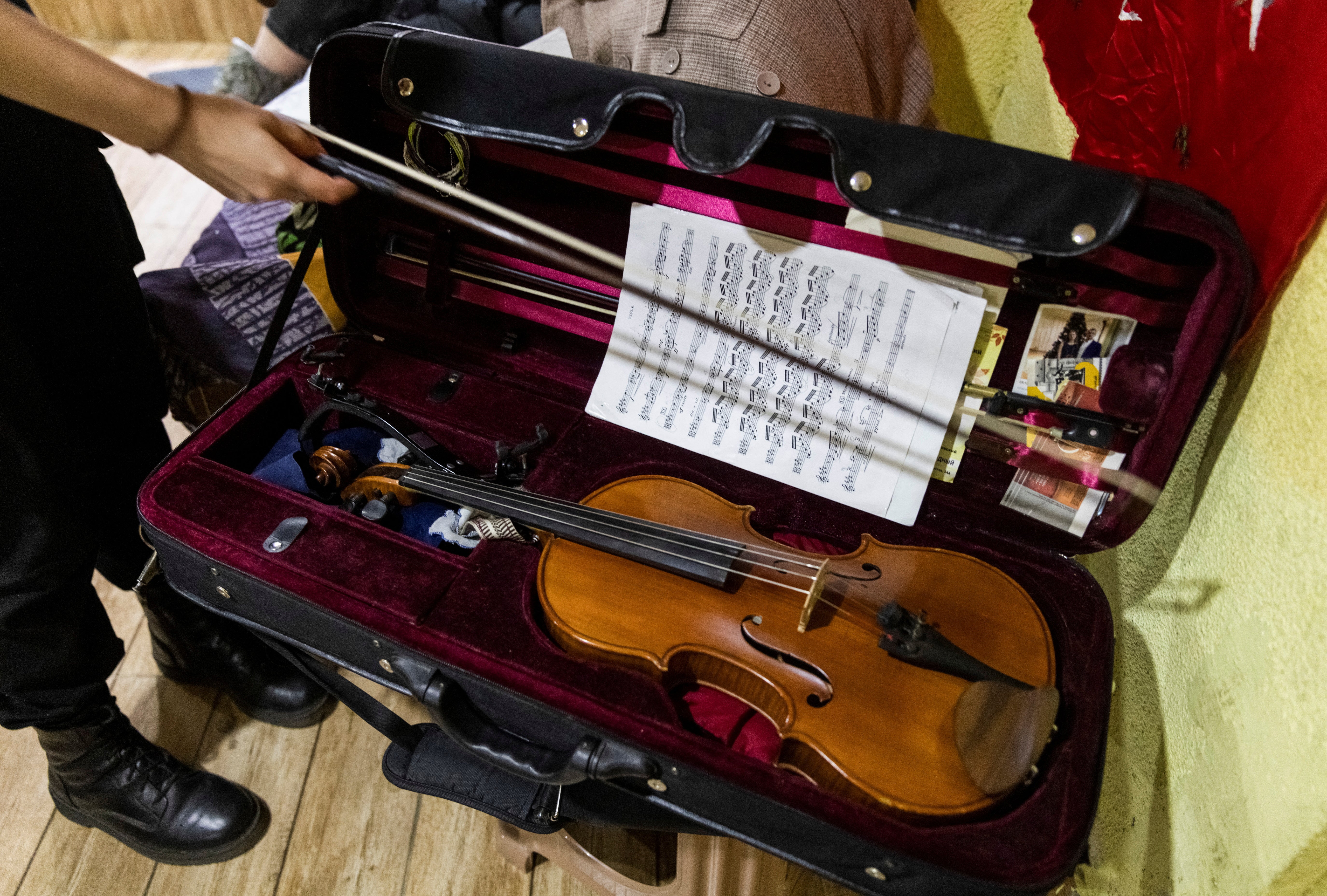
Antropov does not intend to return to Russia for the foreseeable future, even if the political leadership changes.
“The next Russian Putin could be even scarier than the current one,” he says, sitting in a Georgian cafe that serves local cuisine.
Recalling his trip to Georgia, he says it took three days to cross the border at Verkhny Lars because the queues of people evacuating Russia were so long.
“We were driven to the border on country roads, bribing police officers, and then walked more than 10km up a mountain,” he says with a wry smile.

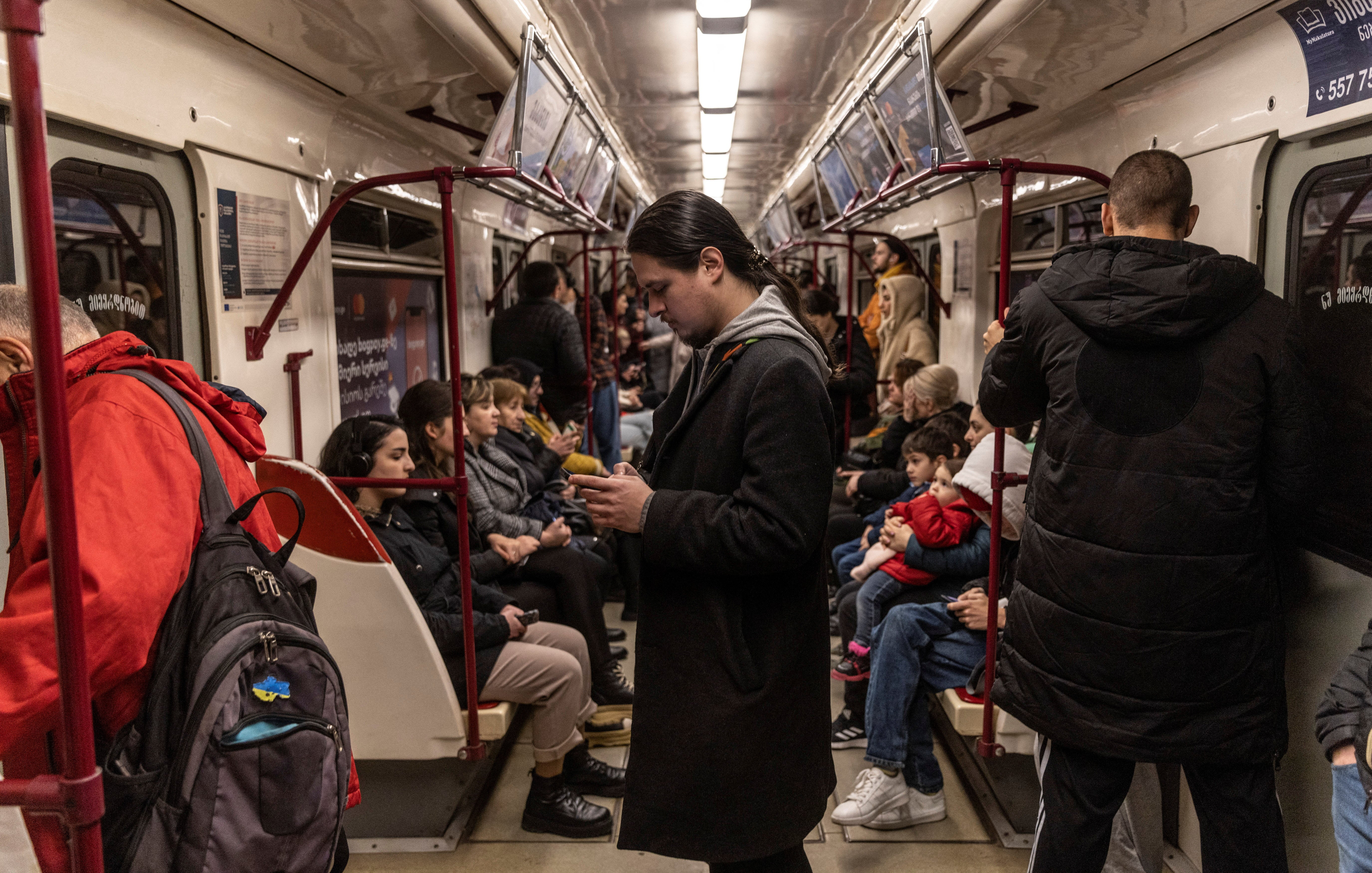
He hopes to buy a property in Tbilisi one day.
“I need a home – a place where I can come back. And I hope Tbilisi will become such a home for me. It is a beautiful city.”
‘A big loss’
Grigory Dobrynin is the drummer with Russian band SBPCh (the Russian initials for “The Largest Prime Number”).
After Moscow launched a full-scale invasion of Ukraine on 24 February, he too left for Georgia, taking only a suitcase full of belongings and two hats that he wore at concerts.
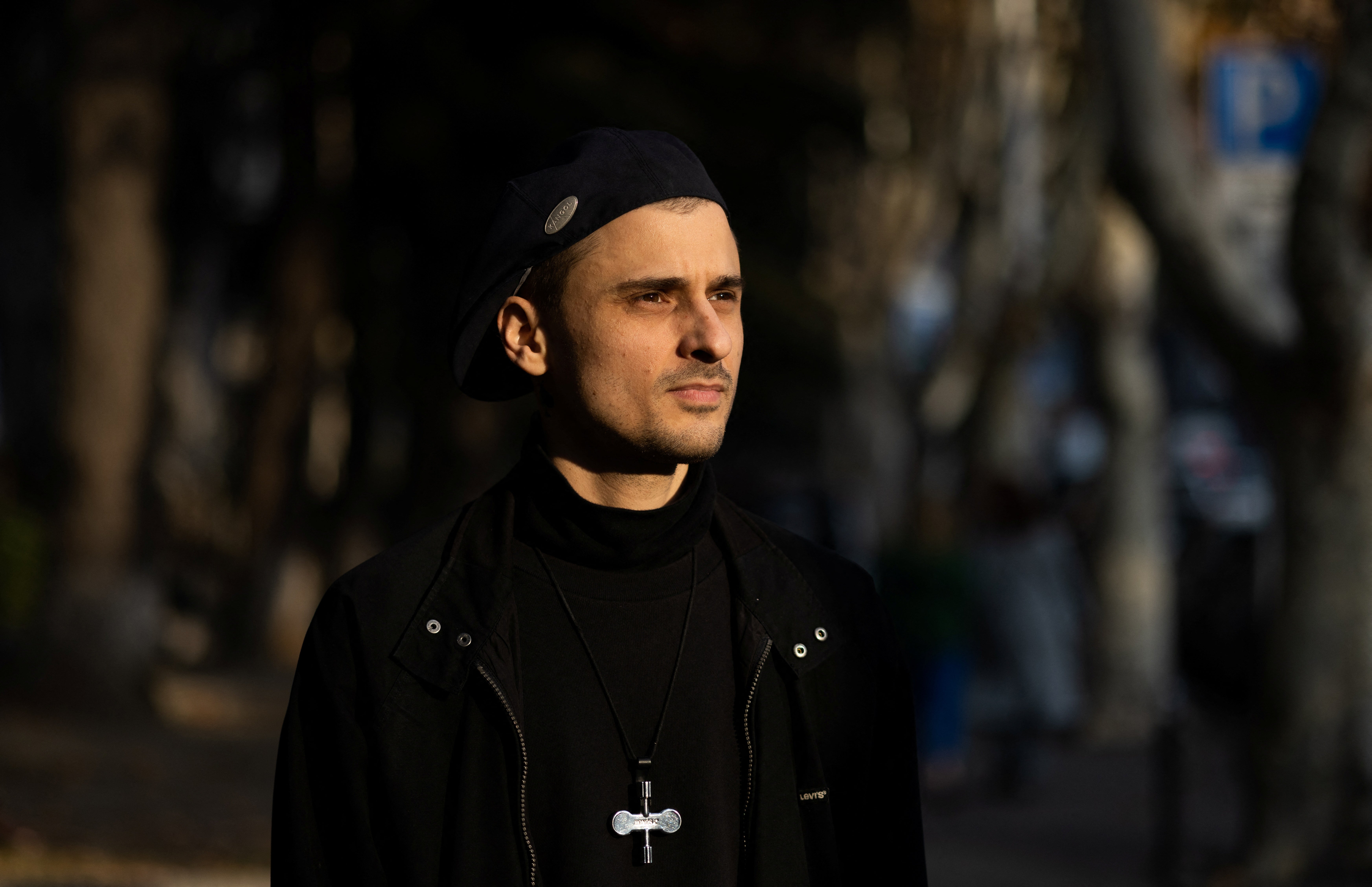
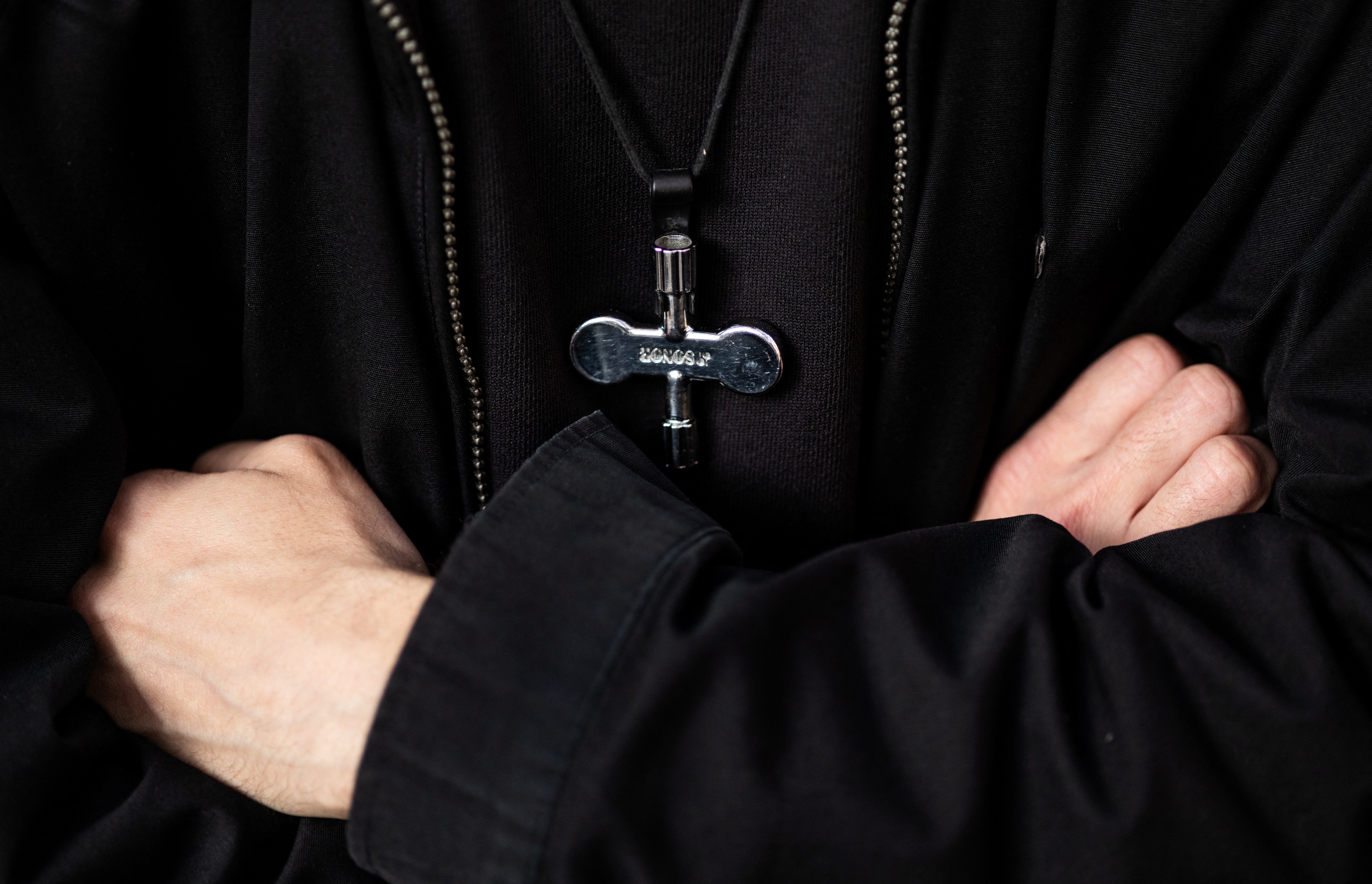
While SBPCh continues to perform in a slimmed-down version, Dobrynin now spends much of his time at Practica, a rehearsal space in Tbilisi that organisers designed as a meeting place for musicians from Georgia and abroad.
Jam sessions happen every two weeks, while Dobrynin also teaches the drums.
“I don’t consider teaching to be a step backwards for me. Teaching and playing in a band are just different things, they cannot be compared,” he says.
“(But) to be honest, I really miss the gigs and the concerts. It’s a big loss for me.”
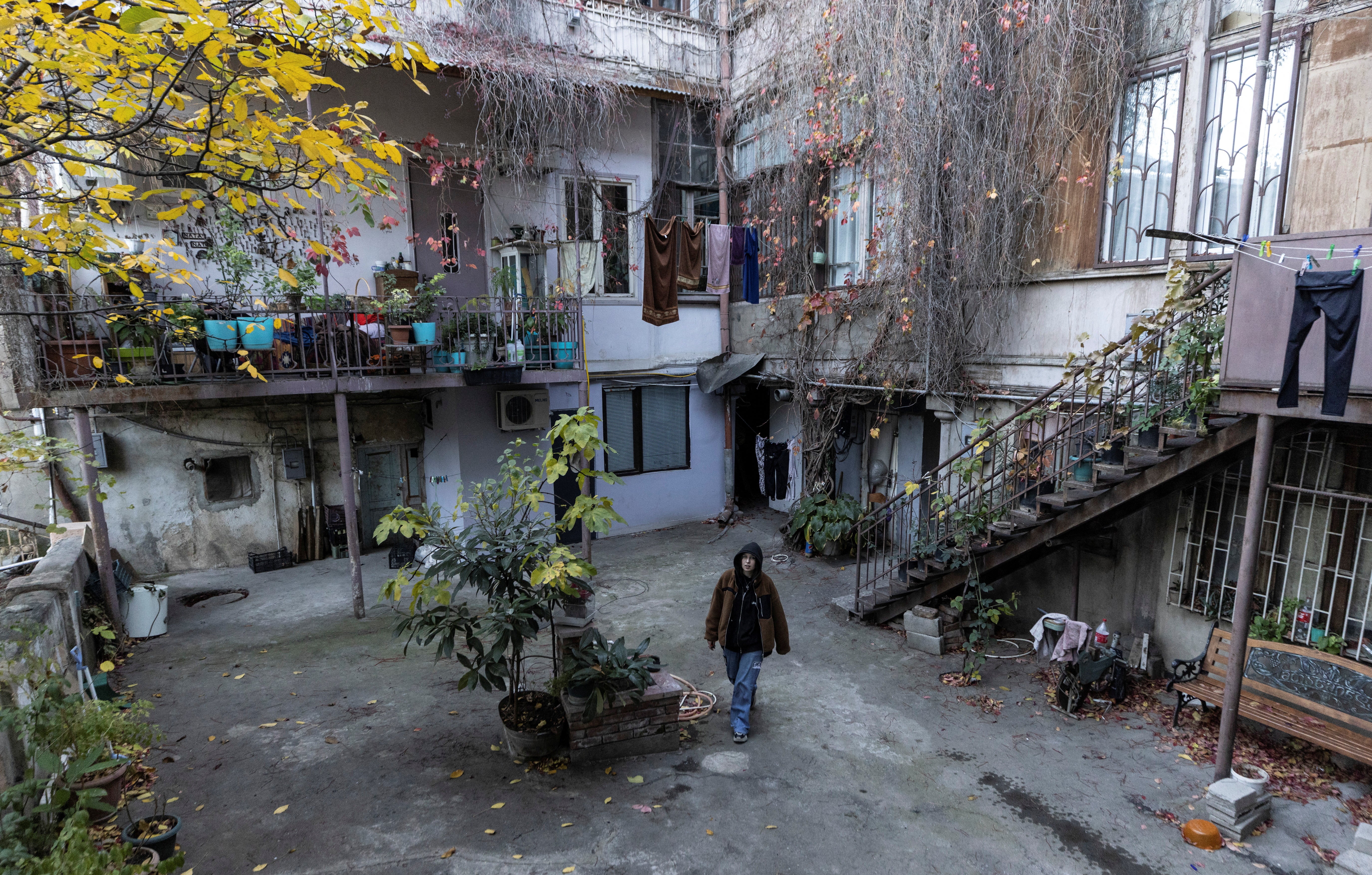
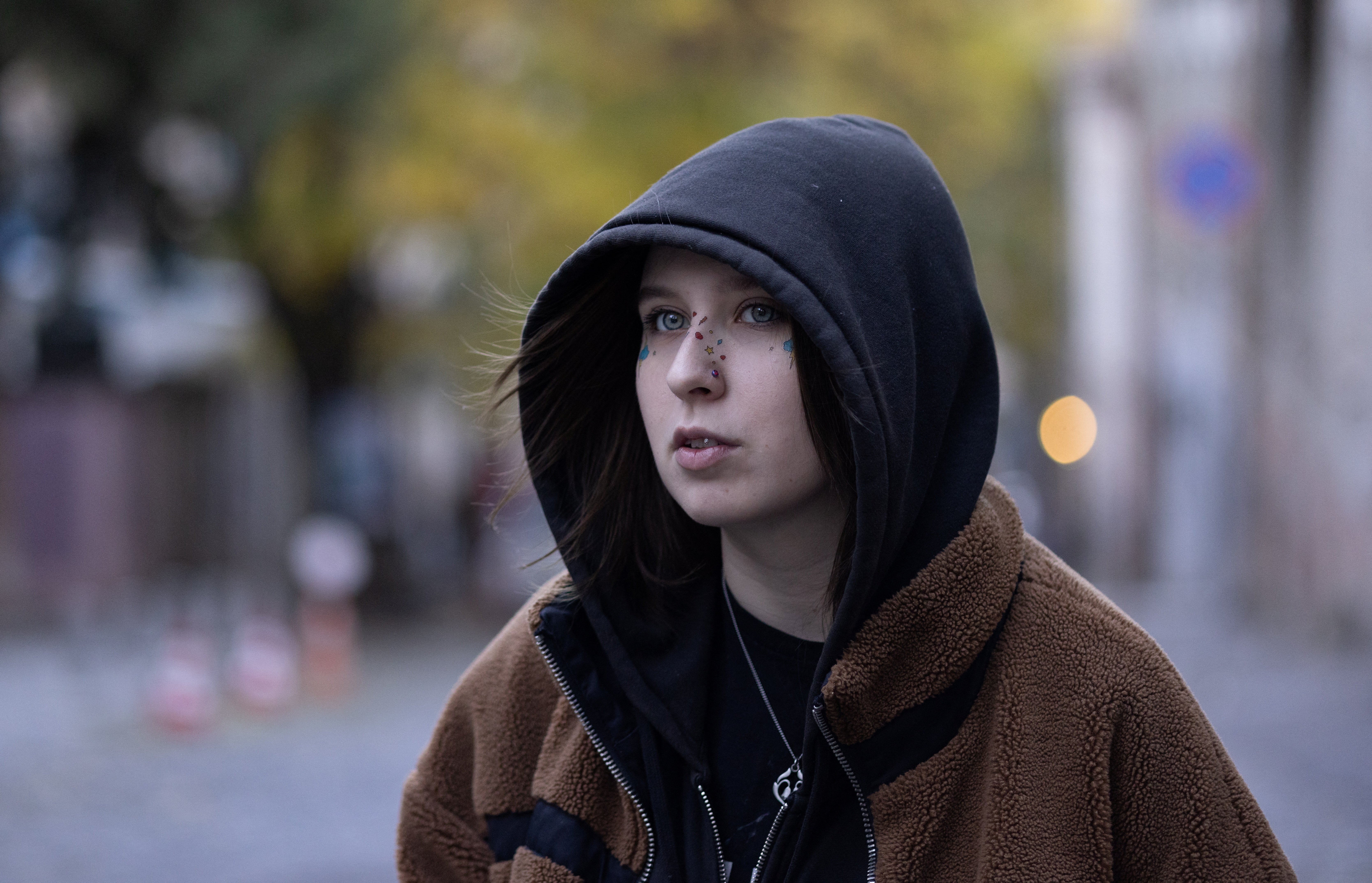
Russian singer and guitarist Anastasia Ivanova, better known by her stage name Grechka (“Buckwheat”), is able to keep touring but has not been able to perform in Russia since leaving last spring, saying she was on a “blacklist” for her opposition to the war.
The 22-year-old, who has also based herself in Tbilisi, says she has performed in Ukraine after the Black Sea peninsula of Crimea was illegally annexed by Moscow in 2014.
“I was very warmly welcomed by the Ukrainian audience,” Ivanova says. “So when Russian TV says that Ukrainians hate Russians, I know it is bullshit.”
Photography by Maxim Shemetov
Reuters
Join our commenting forum
Join thought-provoking conversations, follow other Independent readers and see their replies
Comments